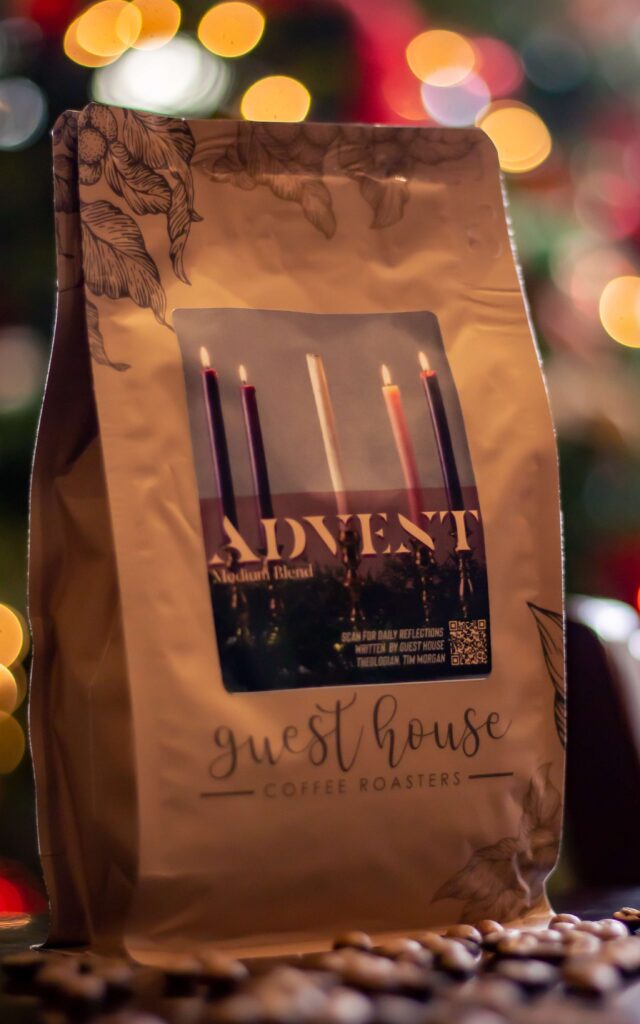“Our God comes; he does not keep silence; before him is a devouring fire, around him a mighty tempest” (Psalm 50:3).
“Through the wrath of the Lord of hosts the land is scorched, and the people are like fuel for the fire; no one spares another” (Isaiah 9:19).
Over these weeks we’ve spent reflecting on Jesus’ coming together, you occasionally may have thought to yourself, “Wow, this guy talks about judgment a lot.” I’ve had the same thought: “Ope, judgment again!” The thing is… the Bible talks about judgment… a lot. (Seriously, read it. It does. A lot.) In fact, it’s pretty much inextricable from the Bible’s message. It’s in the DNA of the world which Scripture says we live in. Judgment is the rest between every heartbeat of creation. Everything all the time is plaited with judgment. I wonder if many of us have adopted a skeptical temperament with regard to judgment; if we’ve lightened the load of its word; if we’ve made judgment roundabout and polite, suave and imperceptibly subtle. I wonder if we’ve domesticated our prophets, censoring God’s word, expunging “woe” and “repent” from our vocabulary. I wonder if many of us have made the good news relatively harmless—controllable and even tactful. The Bible talks about judgment a lot. Why don’t we?
As the psalmist writes, “He calls to the heavens above and to the earth, that he may judge his people: ‘Gather to me my faithful ones, who made a covenant with me by sacrifice’” (Psalm 50:4-5). In the birth of Jesus, God enlists all of creation to pronounce the judgment that the world is his. Angels appear (Luke 2:9), heavenly hosts sing praise (Luke 2:13), shepherds are drawn into orbit (Luke 2:15), a star’s voice lingers in the sky (Matthew 2:2), and foreigners gather (Matthew 2:1). Like a donkey speaking God’s word to a prophet (2 Peter 2:15-16), something strange is happening in creation. The world’s ancient foundations tremble in obedience to God’s command: “Prepare for judgment!”
God’s final pronouncement, his universal judgment is the uncompromising demand that we offer “a sacrifice of thanksgiving,” that we perform our “vows to the Most High,” that we call upon God “in the day of trouble” (Psalm 50:14-15). Just as Christ “loved us and gave himself up for us, a fragrant offering and sacrifice to God” (Ephesians 5:2), just as this characterized his singleness of purpose, the whole course of his life and actions, so too our “sacrifice of thanksgiving” must characterize our singleness of purpose, the whole course of our life and actions (Matthew 3:8). If our gratitude is reducible to words off our lips, then God rebukes us: “The one who offers thanksgiving as his sacrifice glorifies me; to one who orders his way rightly I will show the salvation of God” (Psalm 50:23).
From blasphemy to empty praise, the wrath of God will scorch our world to ash (Isaiah 9:19). He will not look away from injustice (Isaiah 10:1-2). There is no sanctuary from the Lord’s wrath (Isaiah 10:3). We cannot slither away from God’s judgment like snakes when the earth rumbles (Matthew 3:7), for there is nowhere to go. We cannot say, “We have Abraham as our father” (or any substitute for this), for “God is able from these stones to raise up children for Abraham” (Matthew 3:9). The evils of man cannot negotiate before the absoluteness of God’s judgment, “for all this his anger has not turned away, and his hand is stretched out still” (Isaiah 10:4). God’s rebuke doesn’t tire, because thanksgiving isn’t filling God’s need for attention, but what we’re made for.
Today, I’d ask you to cultivate gratitude to God in your heart. See your life today, in your place with your people, through eyes of gratitude. Dwell with the gifts you stumble across. Express your gratitude in prayer. Thanksgiving is where our ever dry, never resting search for joy—for pleasure beyond pleasure—finds its match. Thanksgiving isn’t just proper manners in the context of prayer, it’s enlisting every fiber of our being, every corner of our heart, every faculty of our soul in the response to God’s pronouncement in the birth of Jesus that the world’s good is that it’s his.
Further Reading: Psalm 50; Isaiah 9:18-10:4; 2 Peter 2:10b-16; Matthew 3:1-12
Written by Guest House Theologian, Tim Morgan. These reflections are a complimentary addition to our Advent Blend Coffee Bags. Scan the QR code each day to read the most recent reflection.

More Advent reflections can be found here.